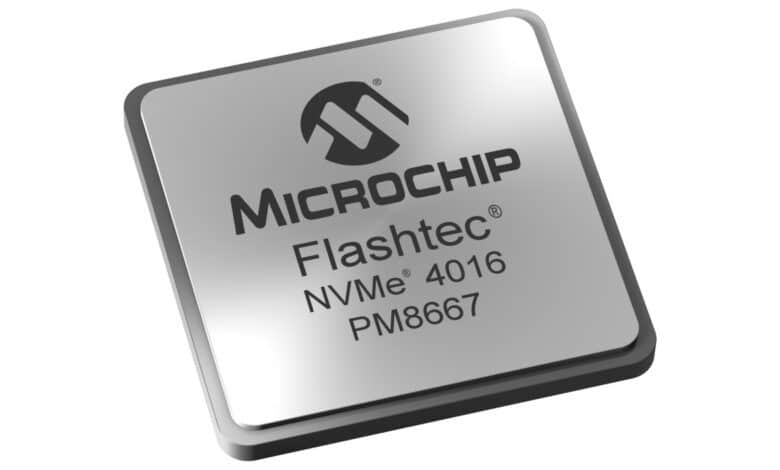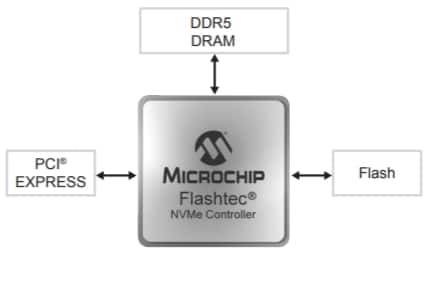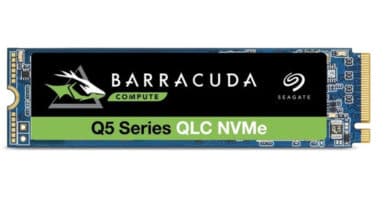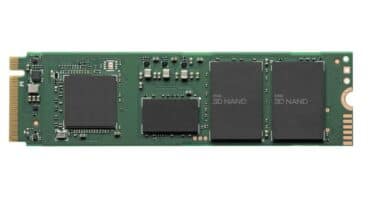
Manufacturer Microchip wants to present nothing less than the most powerful PCIe Gen 5 NVMe SSD controller in the industry” with the Flashtec NVMe 4016. It features 16 independent flash channels and is said to be capable of bandwidths in excess of 14 GB/s.
Flashtec NVMe 4016: SSD controller in the fast lane
16 NAND flash channels, burn widths of over 14 GB/s and possible SSD capacities of over 200 TB: Microchip’s Flashtec NVMe 4016 SSD controller has plenty of steam under the hood and is said to be able to fully utilize the PCIe 5.0 interface.
The new controller has the model designation PM8667 and is said to be capable of over 3 million Input/Output Operations Per Second (IOPS) according to the manufacturer. It also has features that are already cloud-ready and relies on “industry-leading security and encryption, including PCIe Lane encryption”.
The controller will initially be used in servers that already rely on the Intel Sapphire Rapids CPU generation. It is connected via PCIe 5.0 x8 for up to 32 GB/s gross or also twice in PCIe 5.0 x4 with 16 GB/s gross each according to NVMe 2.0 protocol.

Interfaces such as Toggle and ONFI with up to 2,400 MT/s are also supported, although current generations of 3D NAND flash do not even offer these yet. However, the SSD controller can not only cope with SLC, MLC and TLC flash, but also with QLC NAND with 4 bits per cell. In addition, the Flashtec NVMe 4016 is said to offer innovative new and programmable machine learning technology that opens up additional options.
FADU and Microchip in the race
Whether they have actually created the world’s most powerful PCIe Gen 5 NVMe SSD controller in terms of speed remains to be seen. Because FADU has also presented a new solution with the FC5161, which is supposed to achieve 3.4 million IOPS and 14.6 GB/s in sequential reading.
Manufacturers like Kioxia and SK Hynix are considered to be set as buyers for the new technology, which are at least quoted with press comments in the presentation of the Flashtec NVMe 4016. However, SK Hynix will at least also rely on FADU controllers, they had already announced that. Kioxia recently showed a PCIe 5.0 SSD with 14 GB/s and 2.5 million IOPS, but did not reveal the manufacturer of the controller.
Samsung, on the other hand, equips its recently presented PM1743-SSD completely from scratch. It uses a controller that is supposed to achieve speeds of 13 GB/s and 2.5 million IOPS and is thus on par with Microchip and FADU.




No replies yet
Neue Antworten laden...
Neues Mitglied
Beteilige dich an der Diskussion in der Basic Tutorials Community →